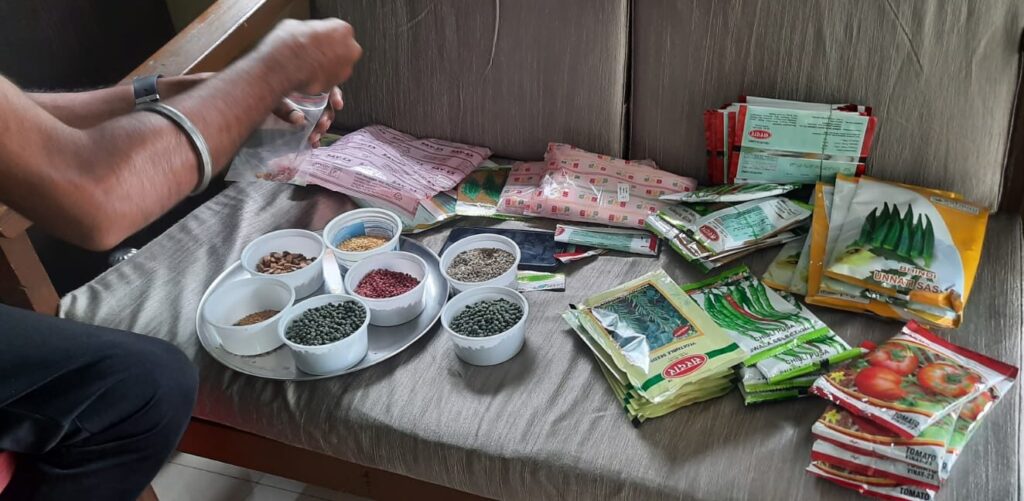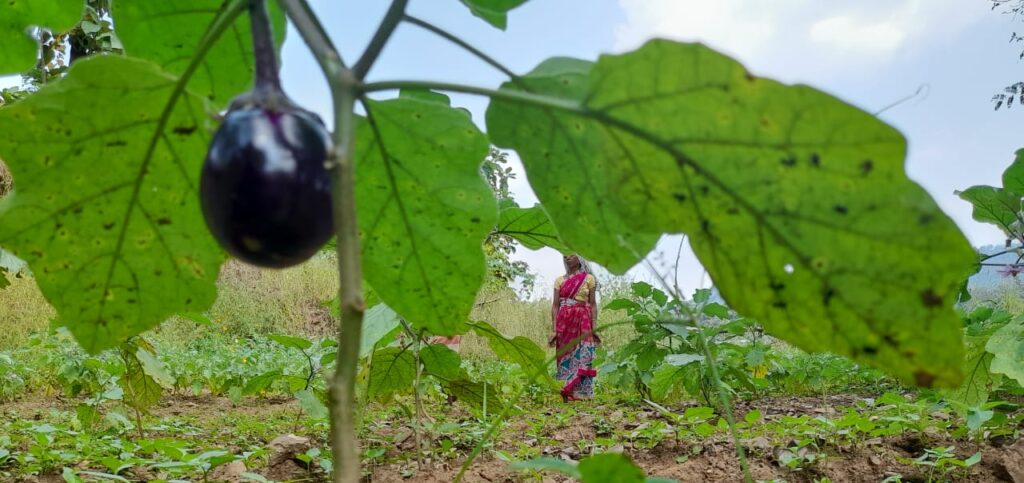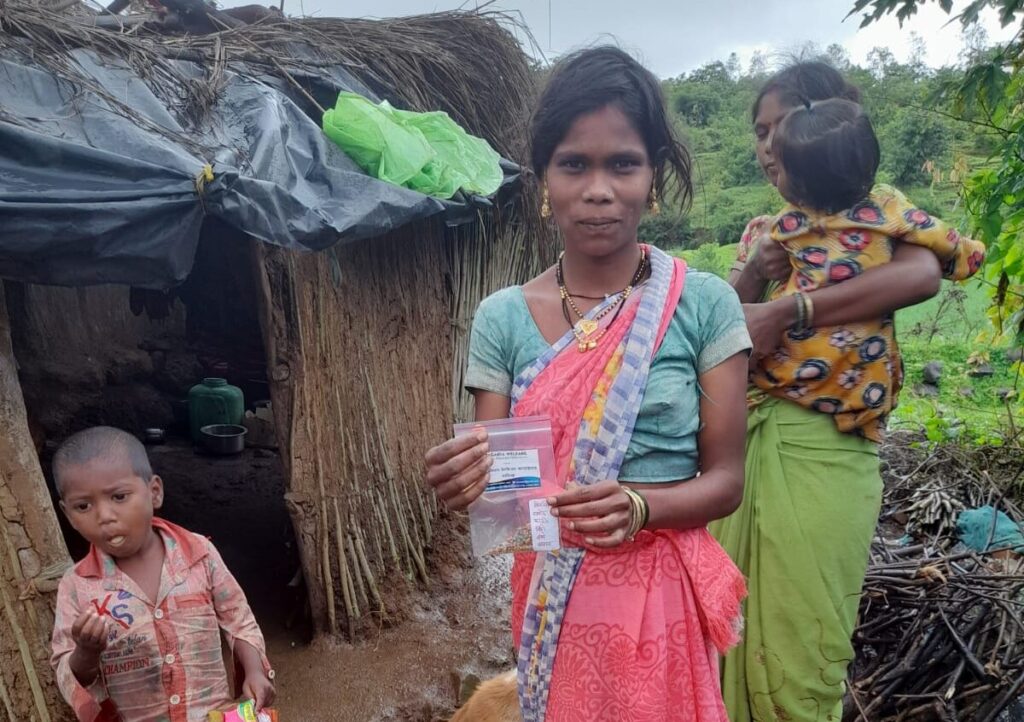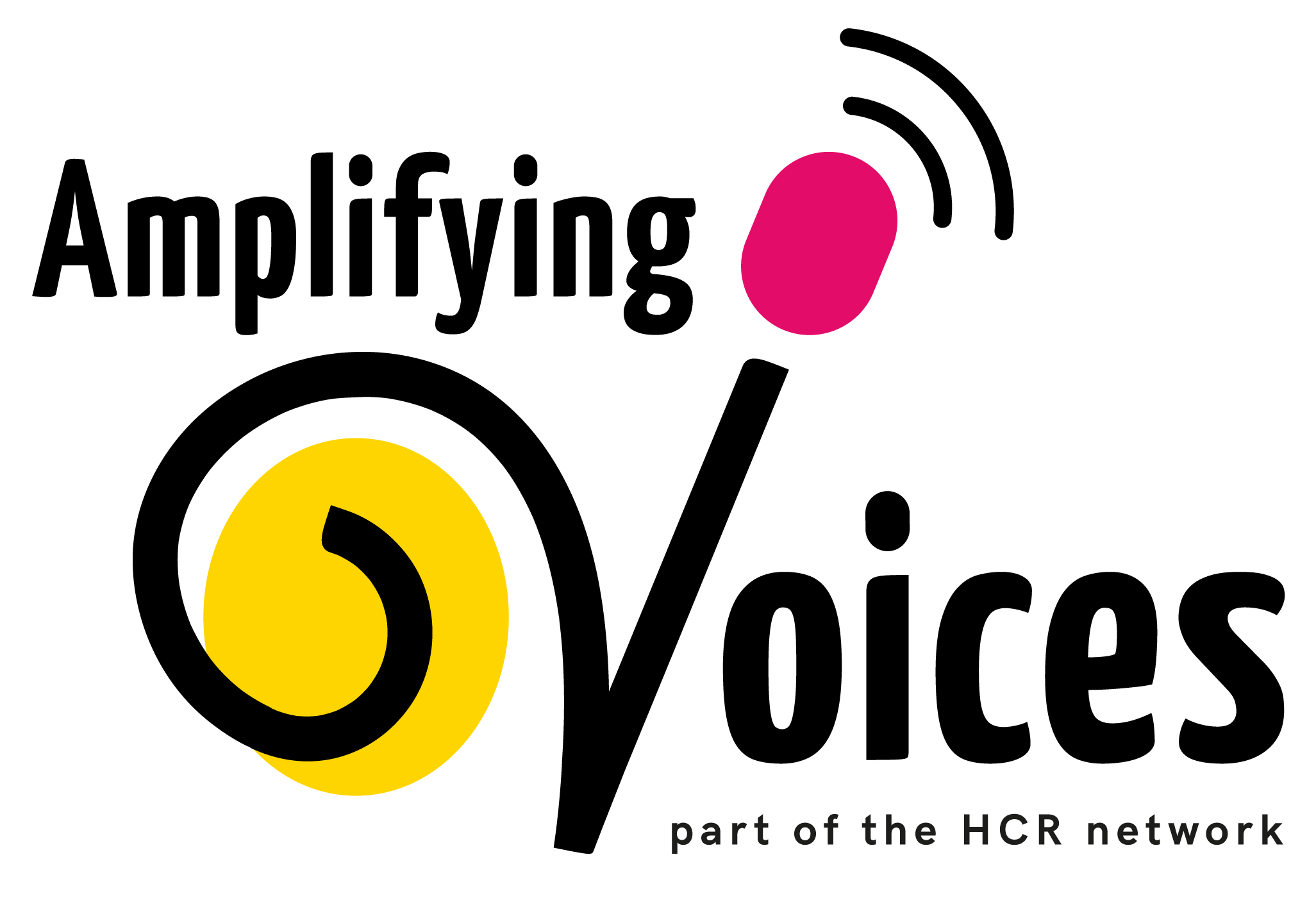
Sowing Seeds in India
When Vaidhei Pagaria, CEO of the Pagaria Welfare Foundation learned how the actions of one man in a remote Adivasi village in Maharashtra was helping his neighbours, she wanted to learn more and get involved. This is his story:
“My name is Hiram and I live in a small village in Maharashtra called Sagpada. Several months ago I was listening to a programme on the speakerbox provided by Seva Social Welfare Foundation, which challenged me to begin growing a kitchen garden to improve the nutrition of my family. We rarely eat vegetables in our village because they are too expensive, but one day when the Seva team came to distribute the monthly audio programmes, they also gave us packets of vegetable seeds such as brinjal, bhindi (okra) and tomatoes. That evening, I listened to a programme about how eating vegetables would give us better health and I was inspired to start my own kitchen garden. The programmes gave instructions on how to look after the plants and even ideas for cooking with the vegetables that we grew. They said that by regularly adding vegetables into our diet, it would make us and our children healthy and strong.”

Hiram’s crops grew so well he soon had an abundant supply and was able to begin providing food for his family and his neighbours as well.
“Over the next few weeks I tended my new kitchen garden very carefully and watched with joy as my vegetables grew. The soil in our village is very fertile and with good rains, my plants were soon producing delicious vegetables. In fact they were so plentiful, that I had more than I needed for my family and was able to share with my neighbours. Every evening we enjoyed the results of our garden and over the next few months I even noticed that my children seemed healthier. I enjoyed tending my new crops so much that in the following months I began visiting neighbouring villages to share my experiences, encouraging them to grow their own gardens. I even began cultivating and giving away seeds from my own land.”
Hiram’s story so inspired Vaidhei, that she contacted Shilpa, Seva’s CEO with an idea. She realised that the power of community-centred media to influence people’s attitudes and behaviour was vital, and that if this was backed up with the provision of resources, the possibility for people to change was compelling. Before long the two organisations were collaborating. Pagaria launched a crowd-funding project to make seeds available at scale, to villages across the district. Seva for its part ramped up programme production, promoting and inspiring the value of kitchen gardens in every home while the audience engagement team began distributing seeds with every programme – multiplying the great work that Hiram had started, reaching many more Adivasi villages.

An Adivasi lady shows the packet of seeds that she’s just received from Seva’s audience engagement team.
Shilpa says, “When we started the Adivasi Voices Project in partnership with Amplifying Voices in 2018, our baseline study showed that malnourishment due to poor nutrition was a major problem across the tribal belt in Maharastra. The beauty of Hiram’s story is that it shows the community leading the way. We believe this new initiative will mark a major change where we will begin to see healthier communities and a reduction in malnutrition and diseases especially among children,” she added.
Besides vegetable seeds Seva’s audience engagement team has now also begun distributing mango saplings, while they continue to make programmes with communities and other service providers to encourage and enable people to use their land more effectively and to develop sustainable livelihoods.
